 So, this weekend my debit card/checking account was hacked for over $1,100! Lucky for us, we have a great credit union that helped me get the issue fixed immediately Monday morning and all of it (including the overdraft fees that it caused) will be fully refunded. My mother asked me who actually ends up paying for these issues since the culprits are rarely caught. Strangely, I knew the answer because I have been trained on PCI compliance. The credit card companies end up eating the cost of fraudulent charges. If you aren’t familiar with the term, PCI or PCI DSS stands for Payment Card Industry Data Security Standard and it is an effort on the part of credit card companies to prevent fraud and protect their bottom line. Anyone who charges credit or debit card is responsible for handling cards in a PCI compliant way. As fundraisers (and more specifically phonathon managers), if you aren’t sure what PCI is or whether you are PCI compliant, you probably aren’t doing it right. Check with your Advancement Services staff and ask about this. Educate yourself, your student supervisors and your callers. The standards were updated in April 2016 and you can download them for review by visiting www.pcisecuritystandards.org/. This happened to me at the University of South Carolina. We utilized every standard and precaution and took it very seriously. However, over a six week period, we started to get a string of complaints about rogue charges a few days after the alumni had made gifts via phonathon. There was no traceable pattern to the issues. Although we never identified the offending caller, we did isolate through analysis of our nightly seating charts that it must have been a caller who was overhearing other callers read out the number to the prospect for verification. We changed that part of the script and never had a problem again. I talk about training our student callers about donor confidentiality and PCI compliance as often as I can because it impacts donor confidence in our organizations but also it impacts families. Most donors are not multi-millionaires, they are well meaning folks whose monthly budget can be wrecked by fraudulent charges and the time it takes to clean them up. So, review the policies and start asking questions about how data and credit/debit cards are handled in your shop. Train your employees about properly taking care of the data, which is really taking care of people. It’s part of stewardship and it’s super-important. If you found this article helpful, you may also be interested in my e-book How to Staff Your Phonathon Super-Fast: Seven Secrets to Fill the Seats. It's on sale now for $40 with the coupon code fillseats (valid through 9/1/16). This book guides you through innovative ideas and practices to turbo-charge your phonathon staffing efforts and break free from the hamster wheel of turnover. It also includes an appendix full of templates and samples to get you started implementing this system fast.
1 Comment
When you are planning any event (for fundraising or otherwise), it’s so important to have a generic checklist to go through during your planning so that you don’t miss something obvious. Most checklists you find online are geared for wedding or other non-professional events. So, I created my own.
Here’s the list of things you should think about when event planning. If you have small events inside a larger series of event (like a convention) you will want to go through this checklist for all of the smaller events and the event as a whole.
“Don't you love New York in the fall? It makes me want to buy school supplies. I would send you a bouquet of newly-sharpened pencils if I knew your name and address.” – You’ve Got Mail
Unfortunately, where I live, school starts while it is still more than 80 degrees and 90% humidity. But, still most K-12 institutions have already started classes. And colleges and universities begin very soon. That means more time trying to find a parking spot for those of you working in higher education. All kidding aside, this is the time. That “back-to-school” feeling is pervasive in our culture. Donors feel it too and get nostalgic for their time at our institutions. It’s the time of very when education is naturally on the mind of our constituents. If educational fundraisers don’t have a plan ready to turn that nostalgia into gifts, we have lost ground and will have a hard time catching up this year. Also, it’s time the perfect time of year to connect back to the mission of your institution. If you work in higher education, there are new students on your campus that are beginning a transformative journey. The classes they take, the things they learn and the people they meet could change their lives. You play a role in that. From raising funds for scholarships and library acquisitions to raising the profile of the institution through outstanding alumni support, advancement is part of that student’s path. So, take a walk on your campus today. Watch the students making their way. Visit the campus bookstore and buy yourself some new pencils. Sharpen them. You have work to do. If you're not familiar with the film, Office Space, get thee to your Netflix list and order it up straightaway. Anyone who works in an office must see this movie because it not only provides catharsis for the modern worker (there's scene where the characters destroy an evil printer), it gives us perfect metaphors to describe what we don't like about our work. You see, I'm a fundraiser. I am focused on all things forward and outward. As a consequence, I am terrible at getting my expense reports done on time. Expense reports are important and I realize this but I cannot seem to get them done on time! This causes some problems for the accounting staff. The photo above is my "punishment" for one of the times that I turned my monthly expense report in 11 days late. I tried to look as remorseful as possible. We called the expense reports "TPS reports" because they had to be done in a certain, specific way and the fundraisers always seemed to be getting it wrong. So, even if it was done on time, you usually had to modify somehow to get it right after turning it in the first time. So, for your Friday fun and entertainment, I give you the Office Space scene RE: TPS Reports. Enjoy!  Chronicle of Philanthropy The gold standard for philanthropy and fundraising jobs. I find it a bit frustrating that you have to select individual states in order to limit your search geographically but we can forgive that small frustration. If you are serious about growing your career, check this job bank regularly. (PS - I found out about my current position on this site.) Chronicle of Higher Education Pretty much the same as the Chronicle of Philanthropy, but specific to higher education. If you don't mind combing through or scrolling past lots of faculty positions, this is another great source. CASE Job Board The Council for the Advancement and Support of Education is the trade organization for higher education fundraisers, alumni relations, and communications/marketing folks. Their job bank is pretty good as most colleges and universities recognize it as a go-to place for higher education advancement professionals. AFP Job Board The Association of Fundraising Professionals website is super-clunky, but if you want to work for a smaller non-profit, arts organization or hospital, AFP's job bank is just the right place to search for that kind of a position. Higher Ed Jobs.com This site has done some significant upgrades since the last time I looked at it. They now have the capability to search by administrative area, which means you can restrict your search to just development and fundraising. There's also a nifty feature allowing you to search by region or metropolitan area. Nice! Individual Institutions pages Keep a short document with a list of institutions you would love to work for one day and copy their Human Resource job bank link into that document. Set a reminder in your calendar to check those at a regular interval (determined by your urgency to change jobs). Some institutions can't afford to advertise positions or feel that they are prestigious enough that they don't need to advertise. Keep tabs on what's happening at these institutions by checking at the source regularly. Head hunters Myers-McRae is the one I'm most familiar with, as I've been on search committees using this company to fill positions. It may take some searching but you want to find the one that is most popular for your preferred type of university and region. Myers-McRae tends to specialize at 4-year schools in the South. Google "higher education executive search firms" to begin your research process. A note: It is unlikely that this will be fruitful for you unless you have at least 5-10 of experience in a given area. Idealist.org This website is great for those that want to work for an organization that has an activist edge. A quick search and I found fundraising jobs at organizations that focused on women's rights, child welfare, climate change and disease prevention/cures. For profit serving not-for-profit You can develop a wealth of skills by working for a for-profit company that serves the not-for-profit industry. Companies like Blackbaud (Raiser's Edge database), Ruffalo Noel Levitz (phonathon and fundraising management), and Stelter (planned giving marketing) to name just a few are worth checking their career pages if you are looking to make a move. That's how I developed expertise in the area of phonathon by working with Ruffalo Noel Levitz (then RuffaloCODY) for five years. These organizations have established training systems and practice excellent benchmarking. There's no better way to learn best practices. Mock Calling is a critical part of any new caller training session. It's also important for new major gift officers and leadership giving officers to practice in this same way. All-to-often, though, the exercise becomes stale and perfunctory. Here are 5 ideas to re-invigorate your mock calling practice, whether you work in phonathon, annual giving, or major gifts.
Voicemail Have your callers each call from their cell phones and leave a voicemail on your office line of an abbreviated script. Then have the entire training class listen to each voicemail and critique the caller based on enunciation, speed, sincerity and other qualities. Scenario Cards Create a set of cards with fake prospects on them. Create corresponding cards with background information on how the prospect is predisposed to react to an ask. Pair up callers and give them several sets of cards to work through alternating between caller and prospects. (This works for leadership and major gift officers too. Just practice asking for a visit and handling objections to taking the visit.) Observation Calls Have one caller go to a nearby office (far enough so they cannot see or hear the group) and have them call a line with a speaker phone function. Put the call on speaker phone so the rest of the class can hear the conversation. Make sure everyone gets a turn and that you debrief after every call what went well and what could be done better. Rapid Fire Objection Practice Divide callers into teams and have them stand in two rows. Give each caller at the front of the line an objection. “I can’t give this year. I just had a baby.” Caller must respond immediately. After each round, have an impartial judge (student supervisors or lead caller) award a point to the team whose caller handled that round best. Winning team gets a prize. Judge selects an MVP from both teams. (For full-time fundraising staff, just practice objections to taking the visit.) Power Intro Drills Practice just the first 10-15 of a call, including asking for the prospect, introducing the institution and yourself and lastly stating why you are calling. Every caller gets several chances and then everyone gets to go again at the end of practice. Select a most improved caller or two who show significant improvement. Judge their intros on sincerity, diction, energy and enthusiasm. Every fundraiser needs a strong introduction whether they are a student caller or the CEO. If you found this article helpful, you may also be interested in my e-book How to Staff Your Phonathon Super-Fast: Seven Secrets to Fill the Seats. It's on sale now for $40 with the coupon code fillseats (valid through 9/1/16). This book guides you through innovative ideas and practices to turbo-charge your phonathon staffing efforts and break free from the hamster wheel of turnover. It also includes an appendix full of templates and samples to get you started implementing this system fast.
One of my first bosses introduced me to a little book called The E-Myth by Michael Gerber. I don’t even remember what the “e” stands for: Entrepreneurial, I think? But, what I do know is that it completely changed the way I thought about my work and I use the concepts in it every single day (more than 10 years later).
I was 23 years old and became the sole full time fundraiser for the 3rd largest political party in the country, The Libertarian National Committee. I had some staff to help me with gift processing and handful of interns but largely it was my show. I have no idea what made them think I was capable of this endeavor but I’m grateful for the myriad experiences that I got and the skills I couldn’t have otherwise developed. In particular, I was responsible for the management and cultivation of a monthly giving program that was the lifeblood of the organization. But, because it was really just me running the show, I think the Executive Director was a bit worried about the plan all being in my head. The classic question, “What if you got hit by a bus?” was one that he posed to me. He gave me the E-Myth to get me thinking about these issues. The E-Myth proposes that you shouldn’t always be working yourself out of a job. Yes, that’s right. You should document every routine task that you do so completely and thoroughly that you can delegate it to anyone and with minimal training they could execute the task in your place. I was hooked. Here was a way for me to empower my gift processors and interns to help me and reduce my daily stress and chaos. Process documentation is also the path to getting promoted. It is succession planning at its finest. It’s also just good management. You not only do the process documentation for your job but require that all of those who report to you do it as well. Now you have the basis for real accountability and knowledge of what everyone is doing at work. Today, process documentation is easier than ever to do efficiently and effectively. With screenshots and screen capture video software, you can train anyone to do routine computer button pushing tasks with complete accuracy. I highly recommend the E-Myth and encourage all organizations to begin the process of documenting their routine tasks. Creating an annual calendar of work with an accompanying training manual or video series seems dry and boring, but I assure you it changes the way you and all of those on your team approach the work. It is a productivity boost and an insurance policy all in one. If you are a new advancement or non-profit professional, one of the best ways to grow and learn is to subscribe to blogs and follow consultants who know their stuff. Below you will find the short list of blogs that I recommend to those I have mentored. Each one communicates the information in digestible chunks and includes actionable steps to implement their concepts. They are in no particular order.
Donor Relations Guru – Lynne Wester Lynne has a brash, down-to-earth approach to donor relations that is fiercely committed to creating positive experiences for donors. Always entertaining and relevant, Lynne also has hundreds of curated samples and resources on her website for you to find inspiration from. Fired Up Fundraising – Gail Perry I like Gail’s approach and the lists that she does on her blog. She has a wealth of information about hosting fundraising events and major gift fundraising. Gail is great for following trends in fundraising and for posts that tell you “things you can do right now” about certain issues. Seth Godin Although Seth Godin is a marketing guru and not a fundraiser, he has a unique and tremendous talent to make what he writes applicable to just about any industry you can imagine. Most of what he writes you can just substitute “prospects” or “donors” for “customers” and it is perfectly relevant. Seth is humorous, ultra-concise and nearly always on target for how to get an edge in our markets. Future Fundraising Now – Jeff Brooks When I was given the task of writing direct mail copy for the first time, I found Future Fundraising Now and it was formative in my approach to copy writing. Posts like this and this and this helped me to craft more emotional appeals in a concise format that pulled a strong response. Amy Eisenstein Much like when I began writing direct mail and sought out resources to teach myself this craft, I found Amy Eisenstein when I started working with fundraising boards and doing major gift work. She is a good teacher and her recommendations are clear and actionable. This post, on what to say to get your board members to give, is a great example of her style, which is truly practical and helpful. If you're at least my age, you probably remember the old Gatorade commercial featuring Michael Jordan with the jingle "Like Mike, if I could be like Mike. I wanna be, I wanna be, I wanna be like Mike!" The theme was excellence and striving for near super-human ability.
Well, I'm not much of a sports person, but dance I understand. So, today, I present one of my favorite ballet numbers and ask you to "Be like Mikhail!" Mikhail Baryshnikov is one of the most outstanding dancers to ever perform. The choreography in this routine from Le Corsaire is so vibrantly energetic and obviously difficult but delivered so effortlessly that it takes your breath away. He soars across the stage. He's in control of each movement but so comfortable because of his practice and repetition that it appears spontaneous. Glorious! This number shows off Baryshnikov's excellence in all aspects: technique, performance, athleticism, musicality, and panache! Can you strive to be this confident, this excellent, this marvelous at your job? This is what you are spending your life doing, why not be great at it? Can you complete your role with such a high level of awesomeness that your inspire others to "wanna be" like you? Show your optimism and passion so obviously in your work quality that it is absolutely contagious! That's fun fundraising! 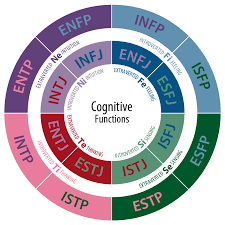 When I was in high school I went to a leadership conference and the organizers had each attendee take the Myers-Briggs Personality Test. (If you aren't familiar with this personality assessment, check out 16personalities.com. I found their analysis to be spot on and helpful as well.) I’m always the same type: ENTJ, the Field Marshall. It’s a relatively rare type and I had never met anyone else that was also an ENTJ. On the last day of the conference, the organizers did something fiendish. They split the group of about 200 student leaders up into smaller groups by personality type. We were given a project to accomplish with those who were our same type. There were only 2 other ENTJs. I immediately loathed both of these people. We all were supremely confident that we had the answers to lead the group to victory and we were all quite vocal about it. I began to wish that I had never met another ENTJ. Was I this terrible to be around? Our group made no progress on the project because we could not stop arguing. After a certain amount of time, these conference organizers gave us all new groups. We were matched with a diverse group representing many different Myers-Briggs types. What a relief! The other groups had struggled too, in different ways. Certain groups couldn’t finish because they just socialized and never got on task. Still other groups over-deliberated. Some never had a leader step forward at all. Each person in our new group had a natural role. I assumed the executive role and others helped the group cooperate and still others made sure we took all details into account. Compared to my ENTJ group, this was project bliss. What I learned from this experience was that there is truly strength in difference. Hiring others who are just like you is not a winning strategy. Also, work is more fun if everyone is a little bit different. Quirks emerge when folks are not all the same. Not to mention that it leads to more productivity when skill sets complement each other rather than clash. So, next time you take one of those personality quizzes on Facebook, think about the results those around you might get too and how that helps you succeed together. Consider this too in your choice of mentor and in your hiring decisions. If you are a big picture “N” (Intuitive), it might be worthwhile to have a “S” (Sensing) perspective in your office to balance your tendencies. You might be so idea driven, you miss critical details that would affect implementation. As a manager, if you are a “TJ” combination (Thinking-Judging), you’ll tend to make snap decisions based on rationality and you’ll often alienate those who are make slower decisions based on feelings. It’s a good idea to consult someone who approached problems differently, especially if your decision will affect many other people. Learning more about yourself is fun and, like a horoscope, it’s entertaining to see how your profile "matches" you. But, I would challenge you to use these types to learn more about those around you for better understanding and perspective. |
Jessica Cloud, CFREI've been called the Tasmanian Devil of fundraising and I'm here to talk shop with you. Archives
July 2020
Categories
All
|
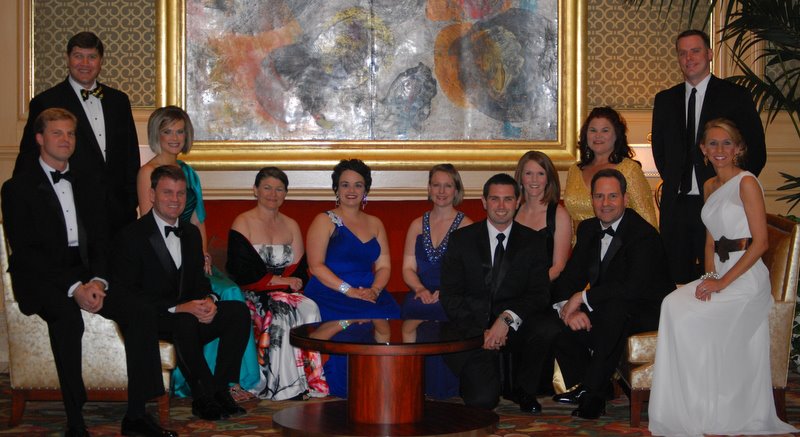

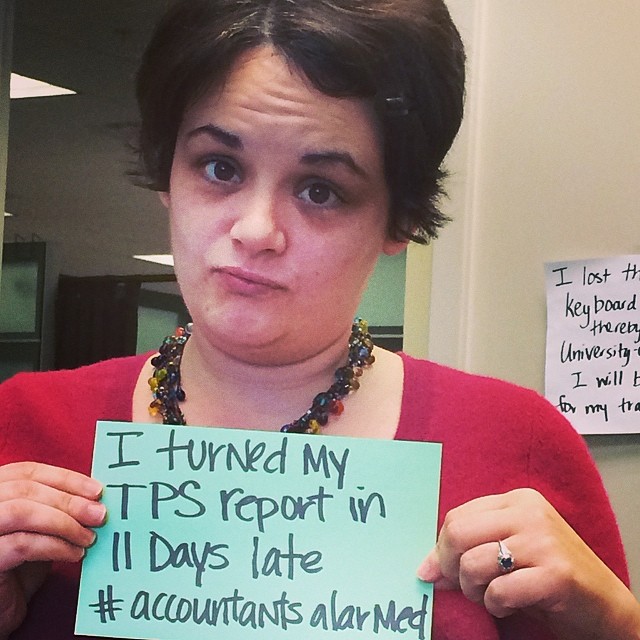
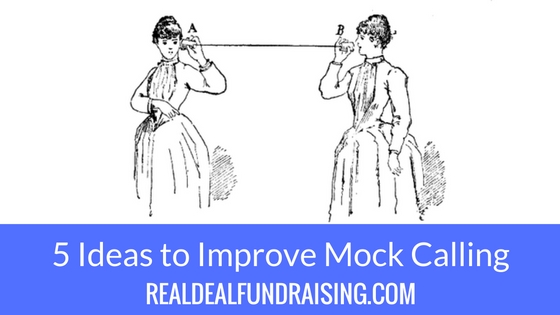
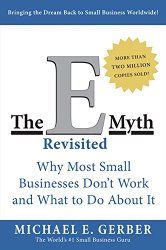


 RSS Feed
RSS Feed
